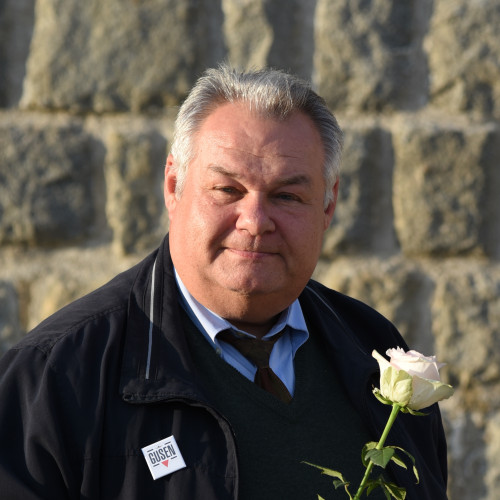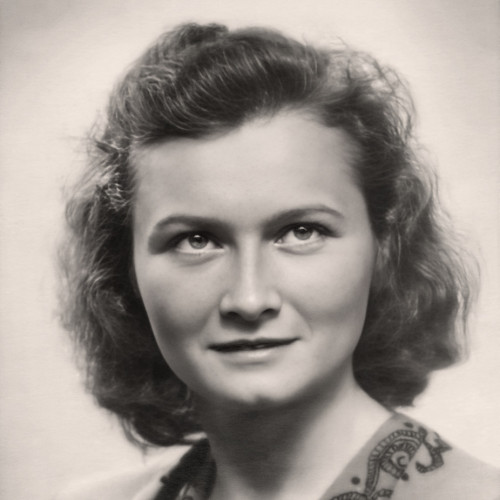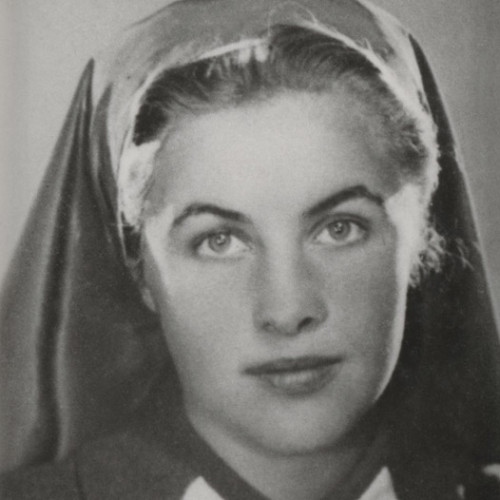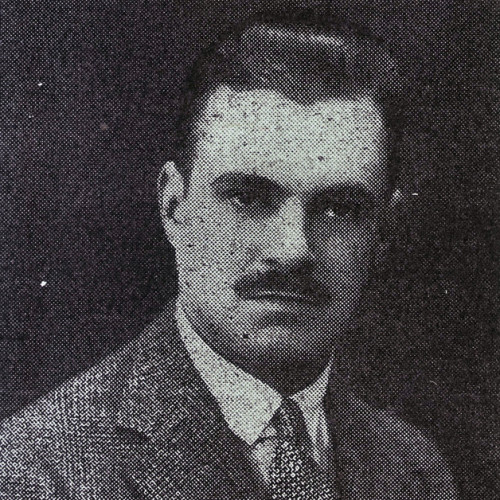Rudolf Haunschmied (1966) - Instytut Pileckiego

As a six-year-old boy growing up near Gusen, Rudolf Haunschmied learned that during the Second World War the village had been the location of a German Nazi concentration camp.
He was initially told this at home by his father, who taught at the local secondary school. The memory of KL Gusen accompanied Rudolf for years to come, in no small part due to an experience from elementary school. Namely, for the first two years of his education, his classroom was housed in the former camp’s SS kitchen barracks, which had been adapted for school purposes in 1950. As ateenager, he became heavily involved in the activities of the Working Group for the Care of Homeland, Memorials and History, which was established in 1979 with the objective of protecting memory and popularizing local history. And although he became an engineer, he devoted most of his life to promoting awareness of KL Gusen and its victims.
He published his first article on the camp complex in 1989, in a book published by the Working Group. The text aroused great interest among the local community, leading the Group to focus its activities on the history of KL Gusen and to work more closely both with Polish institutions and former camp inmates. Through his involvement, Rudolf Haunschmied contributed significantly to the organization in May 1995 of the first official commemoration of the liberation of the concentration camp. He was appointed vice-chairman of the Gusen Memorial Committee following its establishment in 2008, and, together with Martha Gammer, launched an ultimately successful campaign to have the grounds of the former camp recognized as a historical monument and to ensure that the Austrian government bought back some of the postcamp land from private owners. In 2023, his efforts resulted in the publication of a German-language edition of the memoirs of Jerzy Osuchowski, a former prisoner at Gusen.
Ms. Martha Gammer and Mr. Rudolf Haunschmied are persons
of immeasurable merit for keeping alive the memory of the victims
of the German Nazi concentration camp of Gusen in what is now Austria.
The candidates have always approached and continue to approach Polish
victims and former prisoners from Poland with immense commitment and
respect, and, further, have for years maintained excellent, friendly relations
with Polish diplomatic missions, with former prisoners and their families,
and with all other organizations involved in commemorating the fate of Poles.
Excerpt from a text sent to the Pilecki Institute by Monika Szmigiel-Turlej, Director of the Polish Institute in Vienna in the years 2022–24
See also
- Aud Valla

awarded
Aud Valla
(1922–2014)Aud Sejlelid, still going by her maiden name at the time, spent her entire life in the small town of Hemnesberget in northern Norway, in a picturesque land of fjords.
- Ilona Andrássy de Csíkszentkirály et Krasznahorka

awarded
Ilona Andrássy de Csíkszentkirály et Krasznahorka
(1917–1990)Following the outbreak of the Second World War, Ilona Andrássy was working together with other aristocrats, established the Hungarian-Polish Refugee Welfare Committee in Budapest.
- Konstanty Rokicki (1899—1958)

awarded
Konstanty Rokicki (1899—1958)
Rokicki was responsible for one of the Ładoś Group’s most important tasks. In the years 1941—1944 he alone hand-wrote several thousand Paraguayan passports.


